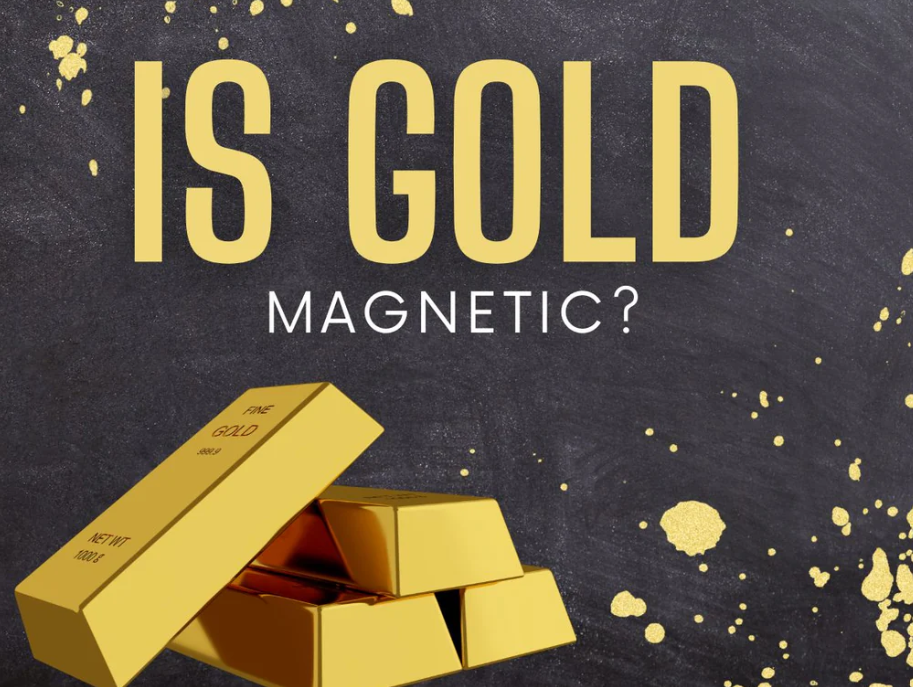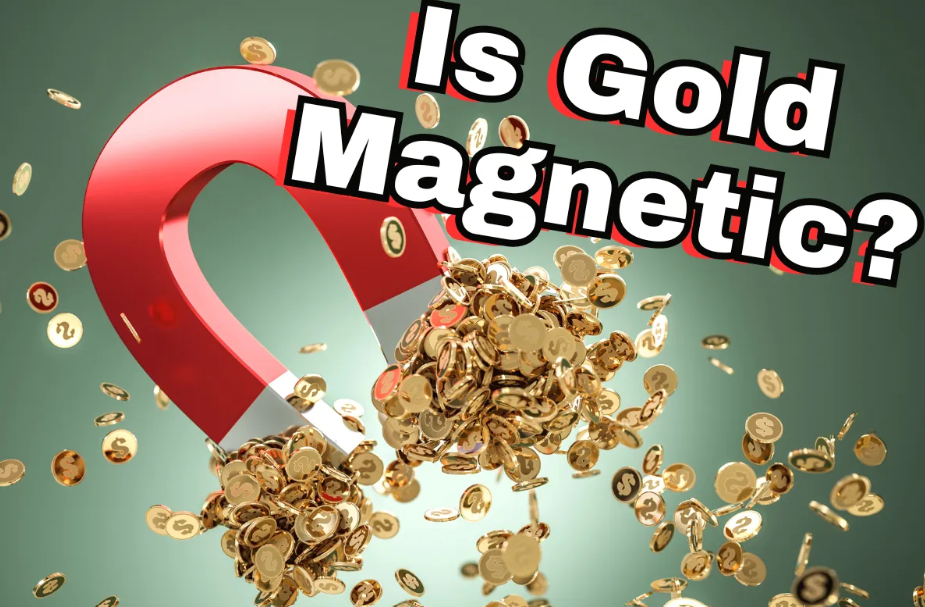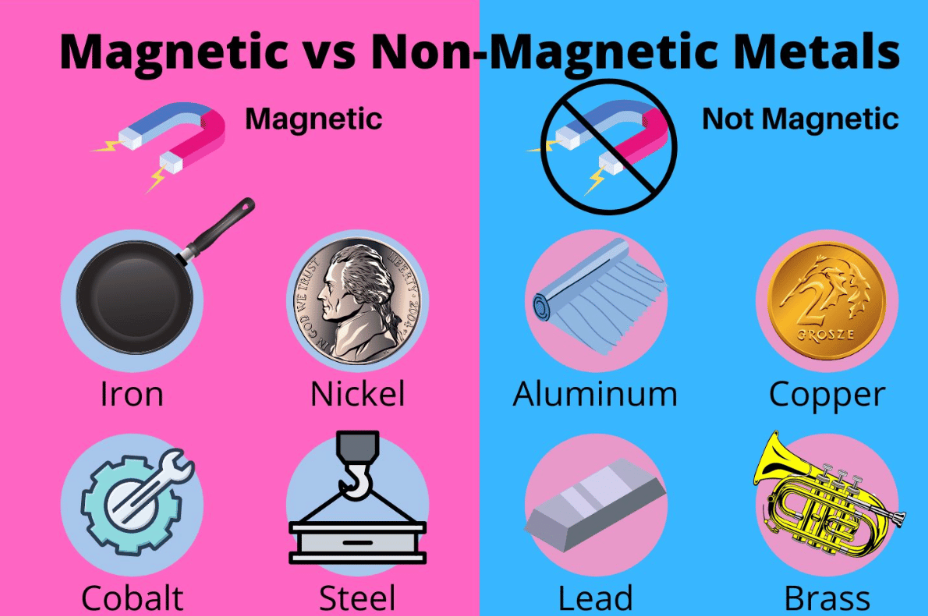
Is Gold Magnetic? A Simple Guide to Understanding Gold’s Properties
Introduction
Is gold magnetic? This is a common question many people ask when they first learn about metals. Gold, a precious and widely loved metal, has unique properties that set it apart from other metals. The simple answer to this question is no – gold is not magnetic. But there’s more to this story than just a simple “yes” or “no.” To truly understand why gold is not magnetic, we need to look at how magnetism works and why different metals behave the way they do.
In this post, we’ll dive into the science behind why gold doesn’t attract magnets and explore the properties that make gold a non-magnetic metal. By the end of this article, you’ll have a clearer understanding of why gold is different from metals like iron or steel, which are magnetic. So, let’s get started with the fascinating world of gold and magnetism!
Is Gold Magnetic? Understanding Why It Isn’t
Is gold magnetic? Many people ask this question when they first come across gold jewelry or gold items. The short and simple answer is no, gold is not magnetic. Gold, unlike metals such as iron, does not respond to a magnet. This is because gold has a unique atomic structure that doesn’t allow it to become magnetic. Let’s explore why this is the case and what makes gold different from magnetic metals.
Gold is a non-ferrous metal, which means it does not contain iron, a key element required for magnetism. Metals like iron, nickel, and cobalt are attracted to magnets because of the way their atoms are arranged. Gold’s atoms do not have this arrangement, which is why it doesn’t react to a magnetic field.

How Does Magnetism Work and Why Gold Doesn’t Respond? Is Gold Magnetic
To understand why gold isn’t magnetic, it’s important to first learn how magnetism works. Magnetism occurs when the atoms of a material align in such a way that they create a magnetic field. In magnetic metals, such as iron, the electrons in their atoms align and create a magnetic field that attracts magnets.
Gold, however, does not have the same atomic arrangement. Its electrons do not align in a way that produces a magnetic field. As a result, gold does not interact with a magnet. This is why, when you place a magnet near gold, it won’t move toward it or stick to it.
What Makes Gold Different from Magnetic Metals? Is Gold Magnetic
Gold is different from magnetic metals because of the arrangement of its atoms. In magnetic metals like iron, the electrons are organized in a way that allows them to form a magnetic field. Gold’s atomic structure does not allow for this, so it doesn’t exhibit any magnetic properties.
- Magnetic metals: Iron, Nickel, Cobalt
- Non-magnetic metals: Gold, Copper, Aluminum
Because gold is non-magnetic, it is often used in jewelry and other products where stability and resistance to external forces are important. While some metals can be affected by a magnet, gold remains unaffected and maintains its shape and shine.
Can Gold Ever Be Magnetic Under Special Conditions? Is Gold Magnetic
Although gold itself is not magnetic, it can become magnetic when mixed with other materials. If gold is alloyed with a metal that has magnetic properties, such as iron, the mixture may exhibit magnetic behavior. However, pure gold, when kept on its own, will always remain non-magnetic.
This doesn’t mean that all gold jewelry or items are non-magnetic. Some jewelry may contain a small amount of magnetic metals, making the overall piece slightly magnetic. But pure gold, found in coins or bars, is not attracted to magnets.

Magnetic Metals vs. Non-Magnetic Metals: The Key Differences
Magnetic and non-magnetic metals behave very differently when exposed to a magnet. Here are some key differences:
- Magnetic Metals:
- Iron
- Steel
- Cobalt
- Nickel
- Non-Magnetic Metals:
- Gold
- Copper
- Aluminum
- Silver
Magnetic metals have a structure that allows them to attract magnets, while non-magnetic metals like gold do not have this structure. This is why gold remains unaffected by magnets and is a stable, non-reactive metal.
How to Test the Purity of Gold: What You Need to Know
Testing the purity of gold using a magnet is not an effective method. Since gold is not magnetic, using a magnet to test its authenticity won’t give you any useful information. To accurately test the purity of gold, you can use methods like the acid test or electronic gold testers, which provide more reliable results.
- Reliable testing methods: Is Gold Magnetic
- Acid Test
- Electronic Tester
- X-ray Fluorescence (XRF)
Using these methods will give you a clear idea of the gold’s purity, rather than relying on a magnet, which will not work with gold.
Conclusion: Is Gold Magnetic
Gold is not magnetic, and this is due to its unique atomic structure. While other metals like iron are magnetic, gold does not interact with magnets in any way. This is one of the characteristics that makes gold a durable and valuable material for jewelry and various other uses. Understanding why gold is not magnetic helps us appreciate its properties and how it is used in everyday life.
FAQs: Is Gold Magnetic
Q: Is gold magnetic?
A: No, gold is not magnetic. It does not react to magnets because its atomic structure does not allow it to.
Q: What metals are magnetic?
A: Metals like iron, nickel, and cobalt are magnetic, but gold is not.
Q: Can gold become magnetic if mixed with other metals?
A: Yes, gold can become magnetic if it is mixed with magnetic metals like iron.
Q: How can I test gold for purity?
A: You cannot test gold purity with a magnet. Use an acid test or an electronic tester for reliable results.
Q: Why does gold not attract magnets?
A: Gold does not attract magnets because its atoms do not align in a way that creates a magnetic field.
Q: Is gold resistant to other forces?
A: Yes, gold is highly resistant to corrosion and does not react easily with many other elements, including magnets.
